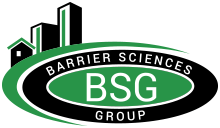What is an Energy Advisor
A Certified Energy Advisor specializes in EnerGuide Home Evaluations. Energy Advisors operate under the umbrella of a licensed service organization, which requires accreditation from National Resources Canada (NRCan). The Energy Advisor provides third party guidance to homeowners who are interested in improving their home energy efficiency. As well, an Energy Advisor would work with a builder who wishes to integrate the EnerGuide Rating System into new construction.
What can energy advisors detect?
Certified Energy Advisors have studied NRCan principles and procedures, and have successfully passed various qualifying exams. They are fully knowledgeable with the rules and regulations of the EnerGuide Rating System. To protect the property owner, an Energy Advisor must be duly registered with NRCan, and must demonstrate proficiency in a number of pre-defined areas:
- Energy efficiency when renovating and retrofitting
- Construction materials (residential/commercial)
- HVAC systems - heat, air conditioning, ventilation
- Building science - the house as a complete system
- Residential and/or commercial building practices
A primary focus for Energy Advisors is rating the energy efficiency of a home (could be either residential or commercial). Through comprehensive inspection and data gathering, a number of quantifiers are assessed: overall air leakage; performance of insulation; natural and mechanical air ventilation; and HVAC efficiency. Inspection results are formulated in a comprehensive report, which then serves to define energy efficiency – this is formally referred to as the Energy Rating.
By using energy modeling software, a Registered Energy Advisor can assist a property owner or building professional in making informed decisions about energy upgrades and/or retrofits. This is valuable with new construction or when doing extensive renovations. Additionally, an Energy Advisor can perform the inspections and tests that are required when verifying compliance with various energy labeling programs (recognized in building codes and energy codes nationwide).
Energy efficiency protocols were developed by National Resources Canada to set common standards and benchmarks for evaluating energy efficiency in building structures. As such, an Energy Advisor administers the inspection service, provides field supervision, and collates all of the salient data. For the property owner, understanding energy consumption patterns is critical to realizing potential energy savings. And today, energy savings could be quite substantial.
A residential home energy audit
A residential home energy audit allows for a better understanding of a home’s performance in general. Understanding energy consumption patterns, for example, can help identify specific improvements that can be made. With a Certified Energy Advisor, the home energy audit is all-inclusive, providing an accurate energy profile and a viable improvement plan going forward.
- the overall performance of the home is assessed with respect to energy efficiency
- performance problems are then highlighted, and specified for remedies and fixes
- seasonal energy bills are evaluated to identify the patterns of energy consumption
- with remedies and fixes implemented, long-term energy savings can be quantified
- the final home energy audit findings will define the need for repairs and retrofits
An official EnerGuide evaluation
When it comes to a building’s energy efficiency, an EnerGuide evaluation is ideal for determining areas of improvement. An accredited Energy Advisor performs the EnerGuide evaluation. Using a number of advanced diagnostic tools, the exterior and interior of a building structure is assessed, and relevant data is entered into special simulation software for further processing and analysis. The bottom line with an EnerGuide evaluation is to determine an EnerGuide Rating. The results can be revealing, allowing building owners to make vital improvements to energy efficiency.
- the overall airtightness of the building structure is assessed
- the insulation performance levels are measured throughout
- the efficiency of the HVAC is calculated (heating and cooling)
- air circulation/ventilation is evaluated (natural/mechanical)
Air leakage testing and remedies
While air leakage can significantly compromise energy efficiency in a building, remedy measures can quickly turn this around. In a typical building structure, air leakage can account for 25-30% of energy waste when heating and cooling. A Certified Energy Advisor can identify the origin and extent of the problem, and can likewise offer recommendations for repairs and retrofits.
In short, a comprehensive approach to air sealing will dramatically improve energy efficiencies, and the retrofit work will make for an excellent return-on-investment. In particular, heating and cooling savings will be substantial. Season after season, the dollar savings on energy will “pay down” the original retrofit project cost. Whatever the building, it makes economic sense.
Pre-drywall blower door testing
With a pre-drywall blower door test, it’s possible to plan for an airtight envelope ahead of time. New construction or renovation, air leakage can be identified early in the building process and costly retrofits can be avoided in the future. A Certified Energy Advisor can perform the pre-drywall blower door test well in advance, so that air leakage can be identified and addressed.
Planning for optimal airtightness in the building envelope can actually save money on building costs. Simply put, the targets for Air Changes per Hour can be achieved in the construction phase, instead of at the retrofitting stage – a definite saving on construction costs. An Energy Advisor can ensure that the pre-drywall blower door test is fundamental to the construction process.
Canada’s EnerGuide Rating System
In 2017, the EnerGuide Rating System will become the recognized measurement of energy consumption in a building. For both homeowners and building owners, the overall amount of energy consumption may well be shocking. What’s of most importance, however, is that the EnerGuide Rating System will identify upgrades and retrofits to improve energy efficiency.
Large building or small, the areas for improvement are quite wide ranging – blocking heat loss; stopping air leakage; enhancing R-Value performance; and controlling air moisture. With the assistance of the Energy Advisor, property owners can opt for remedies and retrofits that will be the most cost effective. Long term, every improvement to energy efficiency is money saving.
In Ontario, energy efficiency upgrades are being supported by numerous provincial rebates and incentives. An Energy Advisor can set the stage for various upgrades and improvements to be made, each of which will contribute to energy savings from season to season, through the year. The good news is that cost of energy upgrades is actually “paid down” by the energy savings.


